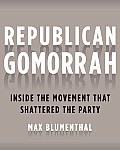Baluchistan: The Unmentioned Player
It caught my attention in the news of the Mosque bombing in eastern Iran on Thursday, killing 25 and injuring about 125, that the alleged perpetrators are said to be Baluchis, one of many ethnic groups in Iran and which lives in large numbers in Pakistan as well. Three were hung in front of the mosque on Saturday, after a quick trial and guilty verdict. This is not the first time that Sunni Baluchis have been said to attack Shiite Iranians. A bus bombing in February, 2007, that killed 11 Revolutionary Guards was attributed to Jundulla, a separatist group in Iran’s largest province, Sistan-Baluchistan — also it’s poorest– and which has a significant presence in Pakistan as well. The year prior some 22 provincial officials were killed and in 2005 a member of President Ahmadinejad’s security detail was killed by an armed group during an official visit to the province.
Iran, on most of these occasions has alleged that the “terrorists” are being funded and encouraged by the CIA and/or British intelligence. On other occasions Iran has accused Pakistan of turning a blind eye to the “bandits and enemies of Iran.” It’s hard to know how serious a threat the Iranian Baluchis pose to the state or even to the province. The actions reported above, while horrific, don’t seem to amount to a major destabilizing force.
Things are different across the border in Pakistan where the province of Balochistan, adjoining its Iranian name-sake along the border, is also the largest province — and where a serious separatist movement against the Pakistan central government has been going on for many years. In all of Pakistan’s current turmoil — with al-Qaeda and the Taliban in the north west, fears of India along its entire eastern border, popular protests against court tampering, weak governments and ISI involvement with al-Qaeda and Taliban– the problem of Baluch separatism gets little attention.
Robert D. Kaplan, a journalist and public intellectual with a marked proclivity for armed mayhem, and the beneficence of U.S. military might, has a useful overview in the recent Atlantic magazine. Pakistan’s Fatal Shore, details the importance of the province, not least for its seacoast onto the Arabian Sea and a huge, Chinese developed mega-port on the peninsula of Gwadar. Pakistani businessmen see the development as becoming the next Dubai miracle, a source of trade and wealth unimaginable without it. However:
Pakistan’s Arabian Sea coast has long been rife with separatist rebellion: both Baluchistan and Sind have rich, venerable histories as self-contained entities. In recent decades, the Baluch, who number 6 million, have mounted four insurgencies against the Pakistani military to protest economic and political discrimination. The fiercest of these wars, from 1973 to 1977, embroiled some 80,000 Pakistani troops and 55,000 Baluch warriors. Baluch memories of the time are bitter. In 1974, writes the South Asia expert Selig S. Harrison, “Pakistani forces, frustrated by their inability to find Baluch guerrilla units hiding in the mountains, bombed, strafed and burned the encampments of some 15,000 Baluch families … forcing the guerrillas to come out from their hideouts to defend their women and children.”
What Harrison calls a “slow-motion genocide” has continued. In 2006, thousands of Baluch fled villages attacked by Pakistani F‑16 fighter jets and Cobra helicopter gunships. Large-scale, government-organized kidnappings and disappearances followed. That year, the Pakistani army killed the Baluch leader Nawab Akbar Khan Bugti. But as government tactics have grown more brutal, a new and better-armed generation of Baluch warriors has hardened into an authentic national movement. Emerging from a literate middle class in the capital of Quetta and elsewhere, and financed by compatriots in the Persian Gulf, these Baluch have surmounted the age-old weakness of feuding tribes, which outsiders like the Punjabis in the Pakistani military once played against each other. According to the International Crisis Group, “The insurgency now crosses regional, ethnic, tribal and class lines.” Helping the Baluch, the Pakistanis say, have been the Indian intelligence services, which clearly benefit from the Pakistani armed forces’ being tied down by separatist rebellions. The Pakistani military has countered by pitting radical Islamic parties against the secular Baluch. As one activist mournfully told the International Crisis Group, “Baluchistan is the only secular region between Afghanistan, Iran and Pakistan and has no previous record of religious extremism.”
For the Baluchis the enemy is any who are not Baluchis, whether the majority Pashtuns in the province or the Punjabis, which make up the bulk of the Pakistani army.
Nawab Khair Bakhsh Marri, the chief of the Marri tribe of Baluch, a man who had been engaged in combat with government forces off and on for 50 years, and whose son had recently been killed by Pakistani troops.
…“If we keep fighting,” he told me gently, “we will ignite an intifada like the Palestinians’. It is the cause of my optimism that the young generation of Baluch will sustain a guerrilla war. Pakistan is not eternal. It is not likely to last. The British Empire, Pakistan, Burma—these have all been temporary creations.
…Marri explained that Baluchistan overlaps three countries—Pakistan, Iran, and Afghanistan—and would eventually triumph, as the central governments of all those lands weakened. Gwadar, in his view, was just the latest Punjabi plot that would prove temporary. The Baluch would bomb the roads and pipelines leading out of the town.
Kaplan: Pakistan’s Fatal Shore
Neither Kaplan nor Marri mention cross border alliances or common purpose, though Jundullah exists in both Iran and Pakistan. The Baluchis cannot, however, be blind to the events taking place to the north where fighters slip between Afghanistan and Pakistan, smuggling weapons, finding hiding places and undisturbed command centers. With the Pakistan Army currently engaged in full force in the Swat Valley it wouldn’t be surprising to hear of surprise attacks in and around Gwadar in the coming weeks.
No Comments »
No comments yet.
RSS feed for comments on this post.
Leave a comment
Comment Guidlines: This space is for commenting on the post above, the ideas, the context,the author. Your ideas, strong but civil, are appreciated. Long cuts and pastes from elsewhere are not. This is NOT the place to create your own private BLOG. Links to other articles are fine, if appropriate. Line and paragraph breaks are automatic; e-mail address are never displayed.
HTML allowed: <a href="" title=""> <abbr title=""> <acronym title=""> <b> <blockquote cite=""> <cite> <code> <del datetime=""> <em> <i> <q cite=""> <strike> <strong>




